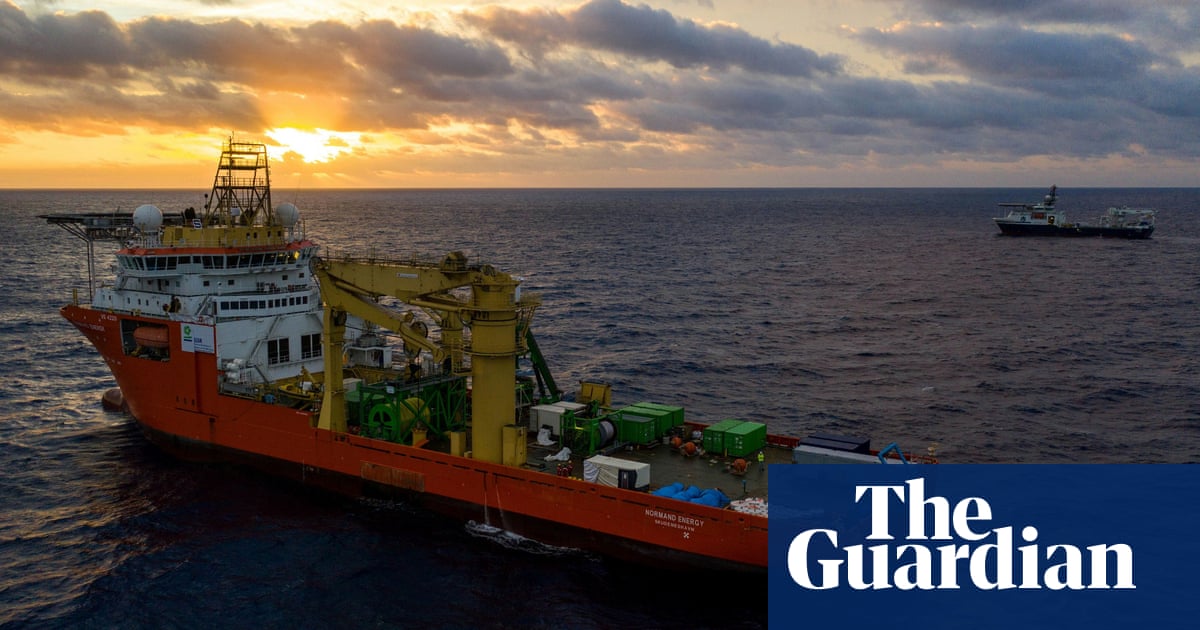Donald Trump on Thursday signed an executive order aimed at boosting thedeep-sea mining industry, the latest attempt to boost US production of nickel, copper and other critical minerals used widely across the economy.
The broad order avoids a direct confrontation with the UN-backed International Seabed Authority and seeks essentially to jumpstart the mining of US waters as part of a push to offset China’s sweeping control of the critical minerals industry.
Parts of the Pacific Ocean and elsewhere are estimated to contain large amounts of potato-shaped rocks known as polymetallic nodules filled with the building blocks for electric vehicles and electronics.
More than 1bn metric tons of those nodules are estimated to be in US waters and filled with manganese, nickel, copper and other critical minerals, according to an administration official.
Extracting them could boost US GDP by $300bn over 10 years and create 100,000 jobs, the official added.
“We want the US to get ahead of China in this resource space under the ocean, on the ocean bottom,” the official said.
The order directs the administration to expedite mining permits under the Deep Seabed Hard Minerals Resource Act of 1980 and to establish a process for issuing permits along the US Outer Continental Shelf, according to the official.
It also orders the administration to issue a report that details areas for potential seabed exploration and to work with allies to look at ways they can share resources in international waters, the official said.
Supporters of deep-sea mining say it would lessen the need for large mining operations on land, which are often unpopular with host communities. Environmental groups are calling for all activities to be banned, warning that industrial operations on the ocean floor could cause irreversible biodiversity loss.
Any country can allow deep-sea mining in its own territorial waters, roughly up to 200 nautical miles from shore, and companies are already lining up to mine US waters.
Impossible Metals earlier this month asked the administration to launch a commercial auction for access to deposits of nickel, cobalt and other critical minerals off the coast of American Samoa.
The International Seabed Authority – created by the United Nations convention on the law of the sea, which the US has not ratified – has for years been considering standards for deep-sea mining in international waters, although it has yet to formalize them due to unresolved differences over acceptable levels of dust, noise and other factors from the practice.
Shares of the Metals Company – among the most prominent of deep-sea mining companies – rose on Thursday by roughly 40% to hit a 52-week high of $3.39 a share after the Reuters report earlier in the day on the executive order.
Beyond the Metals Company, others eyeing deep-sea mining include California-based Impossible Metals, Russia’s JSC Yuzhmorgeologiya, Blue Minerals Jamaica, China Minmetals, and Kiribati’s Marawa Research and Exploration.
US access to critical minerals – especially those produced by Chinese companies – has dwindled in recent months as Beijing has limited exports of several types. That, in turn, has ratcheted up pressure on Washington to support efforts to boost domestic mining.
Last week, Trump officials fast-tracked permitting on 10 mining projects across the United States and implemented an abbreviated approval process for mining projects on federal lands.
The administration also said it would approve one of the country’s largest copper mines.
Trump’s Thursday order uses the term “rare earths” to broadly refer to all critical minerals and is not meant to imply the administration believes the nodules contain neodymium and the 16 other rare earths, the official said.
